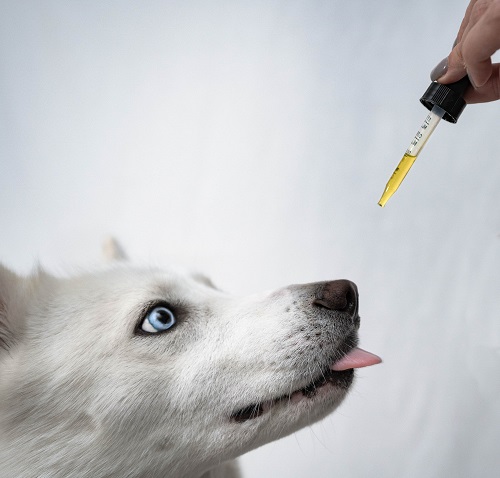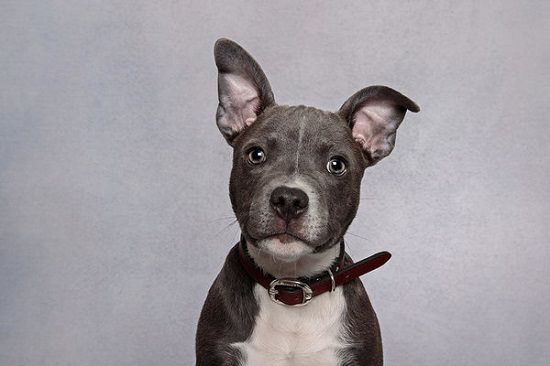Is Castor Oil Safe for Dogs? Discover the potential benefits, risks, and cautions of Castor Oil for Dogs in our comprehensive guide!
Castor oil is a wonderful remedy for humans as it offers plenty of health benefits. Be it healthy skin, strong nails, or luscious hair, castor oil is an all-rounder! But can we use it for our furry friends? Is Castor Oil Safe for Dogs? Let’s learn below!
What is Castor Oil?
Castor oil is a versatile and widely used natural oil extracted from the seeds of the Ricinus communis plant, also known as the castor bean plant. With its distinctive aroma and pale yellow color, castor oil has a long history of use in traditional medicine and various industries.
The castor bean plant is native to the Mediterranean, Eastern Africa, and India. It has been cultivated for centuries for its seeds, which contain around 40-60% oil. The extraction process involves cold pressing or solvent extraction, resulting in a viscous, non-volatile oil that is high in ricinoleic acid, a fatty acid with numerous health benefits.
Is Castor Oil Safe for Dogs?
Well, the answer is yes! You can harmlessly use castor oil for dogs. It’s completely safe, easy to use, and comes with plenty of benefits. While castor oil is generally safe for topical use on dogs, it should not be ingested. Infact, it provides a number of benefits when applied topically—which we will discuss further.
However, the castor bean plant contains ricin, a highly toxic protein that can cause severe poisoning in dogs when consumed.
Can Dogs Have Castor Oil?

While castor oil has numerous potential benefits for humans, it’s important to approach its use for dogs with caution. Castor oil contains ricinoleic acid, which can have anti-inflammatory and pain-relieving properties, making it potentially beneficial for topical use on your dog’s skin or coat.
However, when it comes to ingesting castor oil, the scenario changes. Castor oil can act as a strong laxative, and giving it to your dog orally may lead to diarrhea, dehydration, or even electrolyte imbalances. You must be careful while using castor oil for dogs topically, as it might hurt their gut health if they end up licking the area.
How to Use Castor Oil for Dogs?
Do note that castor oil should not be ingested by dogs due to the potential presence of residual ricin, a highly toxic protein. However, if you are considering the safe topical use of castor oil for dogs, here are some ways it can be applied:
- Treating Dry, Itchy Skin: Gently massage a small amount of castor oil onto affected areas to help soothe and moisturize the skin.
- Improving Coat Appearance: Mix a few drops of castor oil with your dog’s regular grooming product or a carrier oil like coconut oil, and massage it into their coat. Brush thoroughly afterward to distribute the oil evenly and remove any excess.
- Addressing Minor Skin Irritations: After cleaning the affected area with mild soap and warm water, apply a thin layer of castor oil to help reduce inflammation and promote healing.
- Paw Care: If your dog has dry, cracked paw pads, you can apply a small amount of castor oil to help moisturize and soften them. Be sure to put booties or socks on your dog’s paws afterward to prevent them from licking the oil.
Remember to always consult with a veterinarian before using castor oil on your dog and monitor for any adverse reactions.
Health Risks of Using Castor Oil for Dogs
While castor oil can offer benefits when used topically on dogs, there are some health risks associated with its improper use:
- Ingestion Risks: Avoid letting dogs ingest castor oil. It might contain ricin, a deadly protein. This ingestion can trigger severe poisoning, with symptoms including vomiting, diarrhea, abdominal pain, and dehydration. In severe cases, it may even lead to organ failure or death.
- Allergic Reactions: Castor oil may cause an allergic reaction in some dogs. Symptoms include skin irritation, redness, itching, or swelling. Apply a patch test before using the oil extensively. Watch your dog for any allergic reactions.
- Skin Irritation: Castor oil can irritate a dog’s skin, especially if it’s sensitive. Overuse or improper application can increase this risk. To minimize it, dilute the oil with carrier oil and apply it sparingly.
- Interference with Other Medications: Castor oil may interfere with your dog’s medication, especially topical treatments. Before using castor oil, consult with your vet. This will ensure it doesn’t interfere negatively with existing treatments.
Castor Oil for Dogs—Precautions to Consider
Before including castor oil in your dog’s grooming routine, take care of the following precautions:
- Always use natural, hexane-free, cold-pressed, and organic castor oil instead of chemical-induced one.
- Keep the castor oil away from the children.
- Never use castor oil in treating digestion and eye problems, as direct consumption may lead to health consequences.
- Make sure the castor oil is from a trusted organic brand.
- Examine the behavior of your dog after a one-week application of castor oil as some dogs are allergic to castor oil.
- Wash your dog’s skin after applying the castor oil.
What to Do if a Dog Ingests Castor Oil?
If your dog accidentally ingests castor oil or licks the topically applied portions, here are the remedies you must seek:
- Assess the Symptoms: Observe your dog for any signs of distress or discomfort, such as vomiting, diarrhea, excessive drooling, abdominal pain, weakness, or dehydration.
- Contact your Veterinarian: Reach out to your veterinarian or an emergency animal clinic as soon as possible to discuss the situation and seek professional advice. They will provide guidance on the best course of action based on your dog’s condition and the amount of castor oil ingested.
- Do NOT Induce Vomiting: Unless explicitly instructed by your veterinarian, do not attempt to induce vomiting in your dog. This may cause more harm than good and is not always the appropriate response to ingesting castor oil.
- Follow your Veterinarian’s Instructions: Your veterinarian may recommend specific treatments, such as administering activated charcoal or providing supportive care, depending on the severity of the situation. Make sure to follow their instructions closely to ensure the best outcome for your dog.
Key Takeaways
So coming to the conclusion, castor oil is safe for dogs but only when used externally. It’ll help your dog’s fur to stay healthy and prevent his skin from harmful bacteria and fungus.
Ingesting or applying castor oil drops can be a problem as castor oil is a powerful laxative and will end up interfering with your dog’s digestive system. Always consult your vet before taking any relevant measures.
FAQs
1. Can Castor Oil Induce Labor in a Dog?
There is no scientific evidence of castor oil being helpful in inducing labor in dogs. Using castor oil for this purpose can potentially cause harm to both the mother and her puppies. If you are concerned about your dog’s labor process or pregnancy, consult your veterinarian for professional guidance, and do not risk your dog’s life based on home remedies.
2. Is Castor Oil Effective for Dog Tumurs?
No, castor oil is not scientifically proven to be an effective treatment for dog tumors. Cancer treatment for dogs should always be guided by a veterinary oncologist, who can recommend the most suitable therapies based on your dog’s specific condition.
3. Is Castor Oil Good for Dogs’ Eyes?
Castor oil should not be used in a dog’s eyes without consulting a veterinarian. If your dog is experiencing eye issues, perform a professional examination to determine the cause and receive appropriate treatment recommendations. Using castor oil in the eyes without proper guidance may lead to complications or exacerbate existing conditions.




You say don’t use castor oil in pets eyes but I’ve read to add 1 drop into the eye can help/prevent cataracts ?
Using it externally can cause the pets to lick it. Coconut oil is a better choice as base oil and you can add mild quantity of diluted tea tree oil. This combination will help dogs skin and acts as anti fungal solution. Thanks